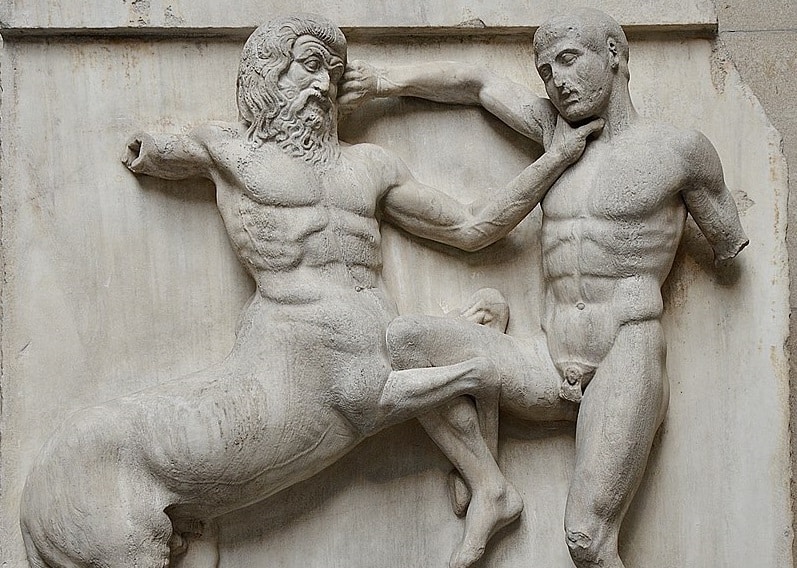The legendary American singer-songwriter Bob Dylan crafted a song in the 1960s which became etched in folklore as the essence of protest and change, for 'the times they are a-changin'.

Well it seems that the times are indeed changing when it comes to the perennial question of the return of the Parthenon Sculptures from the British Museum to the Acropolis Museum in Athens. Ironically, it took a recent article in the Sunday Times to signal a possible shift in the seemingly-entrenched British position.
Time to Release 'Our Grip on the Marbles'
In a piece that attracted a lot of attention, the highly regarded Sunday Times columnist and opinion writer, Sarah Baxter, recently had discussions with both the Greek Prime Minister and Culture Minister in Athens where an air of optimism has taken over. As the Culture Minister, Dr Lina Mendoni, confided in Baxter: “The atmosphere has changed. With goodwill we can find a way forward for both parties.”
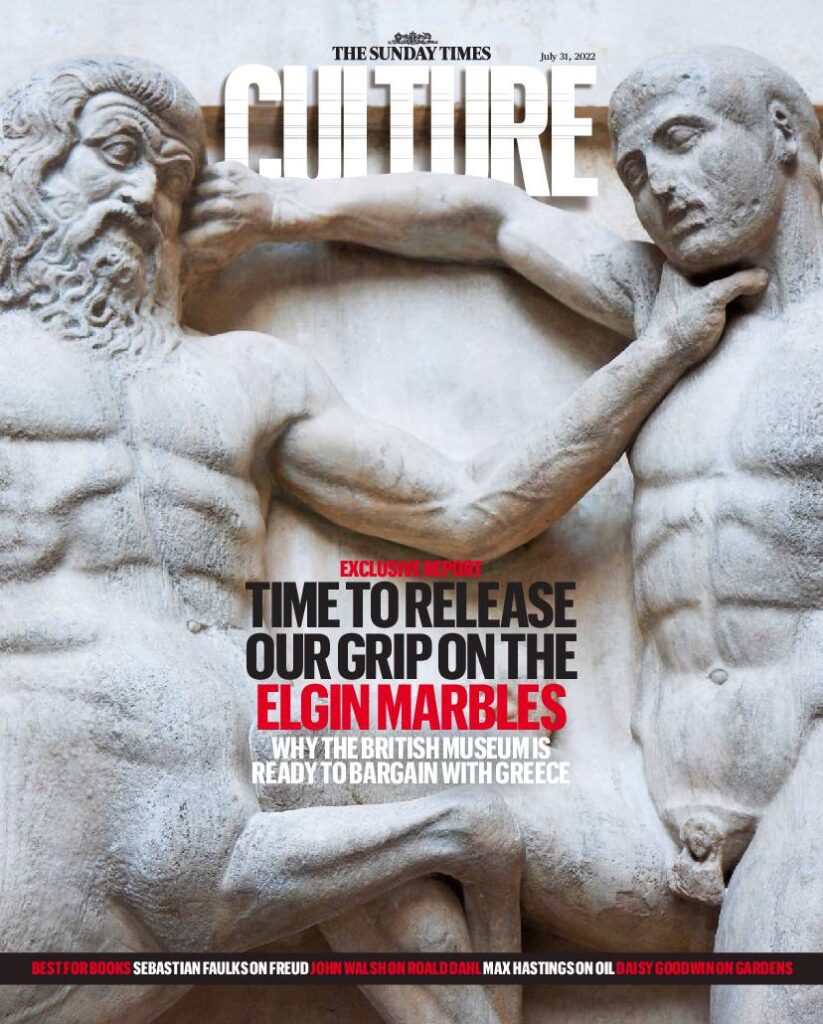
Prime Minister Kyriakos Mitsotakis also confirmed that the Greek State was open to negotiations but that “baby steps are not enough … we want big steps.”
Prior to this, Sarah Baxter had met Jonathan Williams, the deputy director of the British Museum, who declared:
“What we are calling for is an active ‘Parthenon partnership’ with our friends and colleagues in Greece. I firmly believe there is space for a really dynamic and positive conversation within which new ways of working together can be found.”
This was hard on the heels of comments made by the Chair of the British Museum, George Osborne, that the British Museum is open to making a ‘deal’ over the marbles. According to Sarah Baxter, the British Museum knows it is losing the battle for hearts and minds and after decades of defensiveness it is now ready to talk.
Opinion Poll
As if on cue the Sunday Times commissioned a readers’ poll and poignantly asked whether the Elgin Marbles (now known as the Parthenon Sculptures) should be given back to Greece. The result was astonishing with over 11,000 votes cast and almost 4 in five readers agreeing that they should be returned.
The Times is an establishment newspaper and attracts a conservative readership which makes the result even more significant.
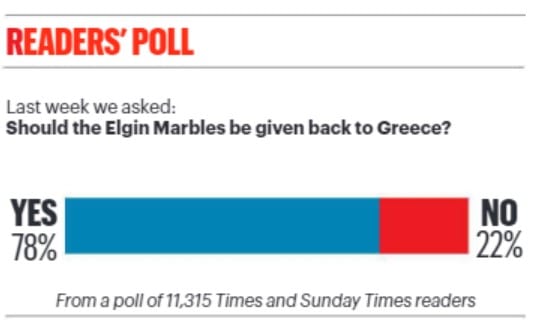
The response in Athens
The Director of the Acropolis Museum, Nikolaos Stampolidis, was encouraged by the words emanating from Bloomsbury and thought that there could be a "basis for constructive talks", adding that in returning them the British would be performing an invaluable act of history. Indeed. it would be as if the British were restoring democracy itself to the birthplace of the democratic ideal.
The British Museum claims that the sculptures convey the "global tale" of human history and are an integral part of the British Museum’s collections. But, according to Baxter, the British Museum’s deputy director concedes that the museum now wants “to change the temperature of the debate”.
This is no doubt partly in response to the criticism levelled at the museum during the recent UNESCO Intergovernmental Committee on the Return of Cultural Property session in Paris when member States resolved unanimously to call upon Greece and the United Kingdom to intensify their efforts with a view to reaching a satisfactory settlement of this long-standing issue, taking into account its historical, cultural, legal and ethical dimensions.
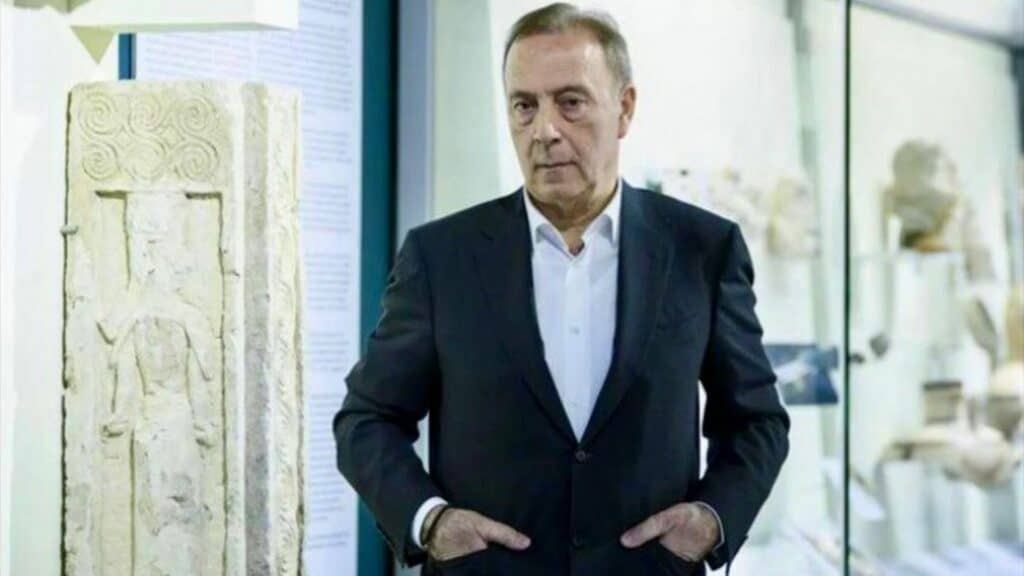
The Director of the Acropolis Museum in Athens, Greece has reiterated that the reunification of the Parthenon Marbles is an ‘international demand’ and is not a dispute between the British and the Acropolis museums. It is not even a dispute between the UK and Greece.
“The reunification of the Parthenon Sculptures to the body they belong to is an international demand for the restoration of the monument that is the universal symbol of democracy.”
Out of Africa: The return of the Benin Bronzes and other colonial spoils of war
In recent times, museums in France, Belgium, Scotland and Germany have agreed to return cultural artefacts looted from Africa, most notably the Benin Bronzes which were plundered and looted as spoils of war in a punitive British military expedition in 1897 and scattered throughout Europe.
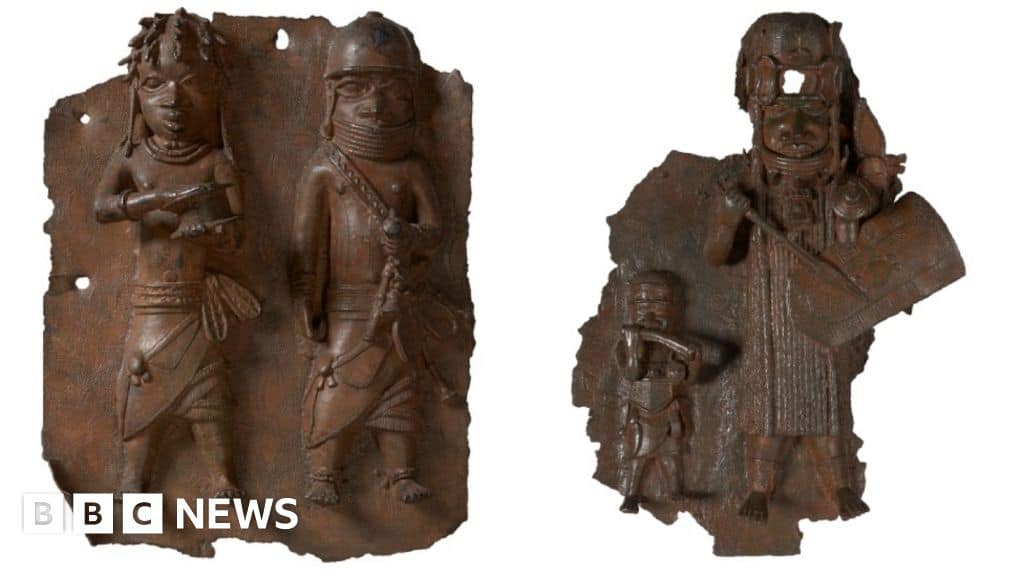
The Benin Bronzes are a symbol of the greed of empire and a large collection still sits uncomfortably in the Africa gallery of the British Museum.
Last week the reputable Horminam Museum in London agreed to a request from Nigeria to return its Benin collection of over 70 pieces. According to the Chair of its Trustees, Eva Salomon:
‘The evidence is very clear that these objects were acquired through force, and external consultation supported our view that it is both moral and appropriate to return their ownership to Nigeria."
This view is shared even amongst conservative commentators. Tomiwa Owolade, contributing writer for the New Statesman magazine, has recently written:
“The conservative case for returning the Benin bronzes acknowledges that these are artworks and that being in the British Museum, in the heart of one of the most global and cosmopolitan cities in the world, allows them to be widely seen. But they are not simply pieces of art. They also come from a particular cultural context and possess a specific spiritual resonance: they have a history which is rooted in a place.”
The observation equally resonates with the case of the Parthenon Sculptures that were torn asunder from their place of creation and their spiritual home.
Shifting of the dial
In late July the influential Mayor of London, Sadiq Khan, came out and agreed that the UK should “find a way to share” the ancient Parthenon sculptures and urged for dialogue to begin. He added:
“I’d really encourage the British Museum, the British government and the government of Greece and the relevant appropriate place – the museum in Athens – to talk about how we can make progress on this issue. I want them to stay in our city, but why can’t we share them?”
In a recent BBC 4 radio broadcast, Sarah Baxter amplified on the prospects of a positive Parthenon Partnership. She believes there is definitely a real feeling of positivity in the air and that the British Museum Deputy Director Jonathan Williams wants to put some flesh on the recent comments by George Osborne.
Whether the arrangement is for a long term loan (as the British would see it) or a deposit pending legal confirmation (as the return on permanent display of the Palermo fragment is described by the Greek side), it would be a diplomatic breakthrough.
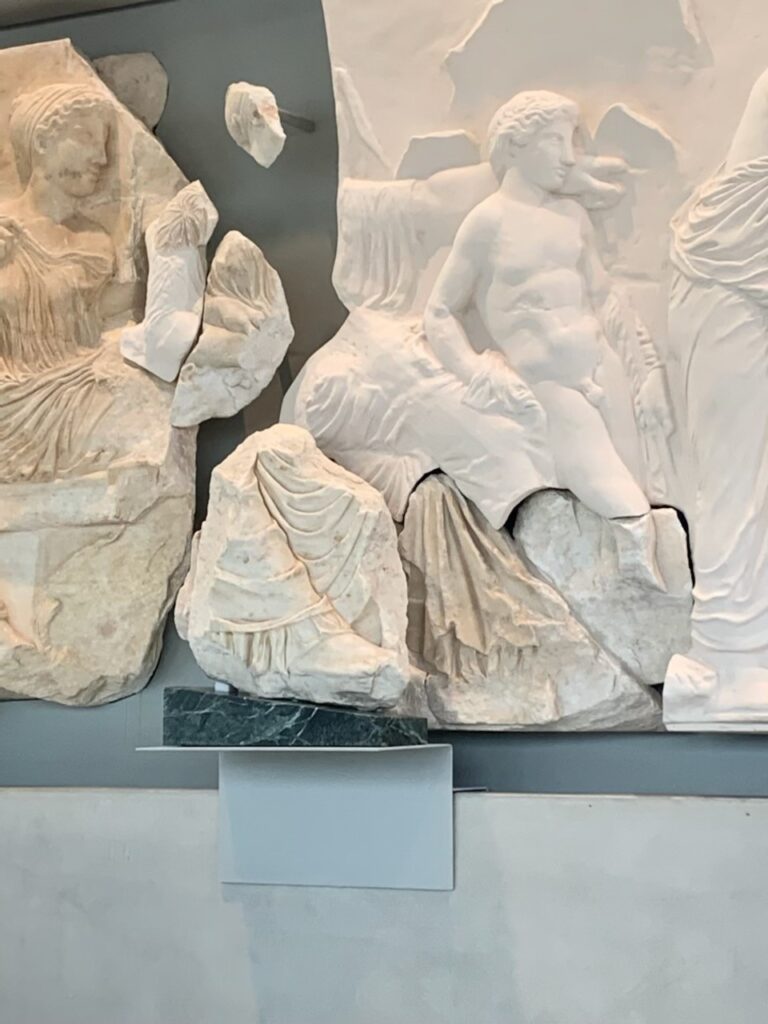
Ed Vaizey, the former Culture Minister, also expressed the view that the dial has shifted whilst sheepishly acknowledging that as Culture Minister a decade ago he had drunk the kool-aid when Neil MacGregor was the British Museum director and pushed the line that the sculptures tell a different story in London and were no longer part of Greek history.
As far as Vaizey is concerned, George Osborne is a savvy, shrewd man who will actively seek out a new deal because, as Dan Hicks, professor of contemporary archaeology at the University of Oxford and author of “The Brutish Museums” has so succinctly put it, these are all indications that they know the game’s up.
The UK Culture Wars
But whether the Conservative cultural establishment moves with the times still remains to be seen. Before Boris Johnson’s premiership started to unravel, some commentators were excited by how a young future prime minister at Oxford University almost four decades ago had waxed lyrical about the injustice of the marbles remaining in Bloomsbury, ignoring Johnson’s numerous statements to the contrary since then, firstly as a journalist, then as a Conservative MP and Mayor of London, and finally as Prime Minister.
And yet there was at least one report in the Greek press that at their meeting at 10 Downing Street in November 2021 Johnson, whilst publicly repeating the line that the issue of the marbles was one for the British Museum and not government, assured Greek Prime Minister Kyriakos Mitsotakis that he would do everything in his power to find the "golden ratio" for a solution to this cultural heritage impasse.
How will his successor fare?
The signs are rather ominous. It would appear that the Conservative Party is lurching further to the right in its battle to elect a new leader with one of the Conservative leadership contenders in the race to the bottom warning against those who would “take a bulldozer to our history, our traditions and our fundamental values”.
After all, one of the conservative rallying cries of the British cultural establishment, unveiled by the former Culture Secretary Oliver Dowden (who, until recently, was the Chairman of the Conservative Party) and enthusiastically adopted by his successor, Nadine Dorries, is that British cultural institutions such as museums and galleries should resort to a policy of “retain and explain” when it comes to calls for the return of looted cultural property during colonial periods and the removal of controversial statues that for many simply glorify the excesses of white colonialism.
The British Museum Act prevents the British Museum from deaccessioning artefacts in its collection in the absence of legislative intervention by parliament. And what are the chances of that?
Tomiwa Owolade is rather sanguine in his assessment:
“(T)here is little chance of this changing in the near future: the current Conservative government is certainly unlikely to act. At a time when the culture wars are so intense, the Tories don’t want to look like they are acquiescing to the demands of progressive activists.”
Only time will tell.
The Parthenon Project
There are many associations and advocacy groups calling for the sculptures’ return. One prominent group, formerly known as “Lost My Marbles, has rebranded as the Parthenon Project, calling for a cultural partnership between the UK and Greece that would include permanent, rotating exhibits of significant artefacts never before seen in London.
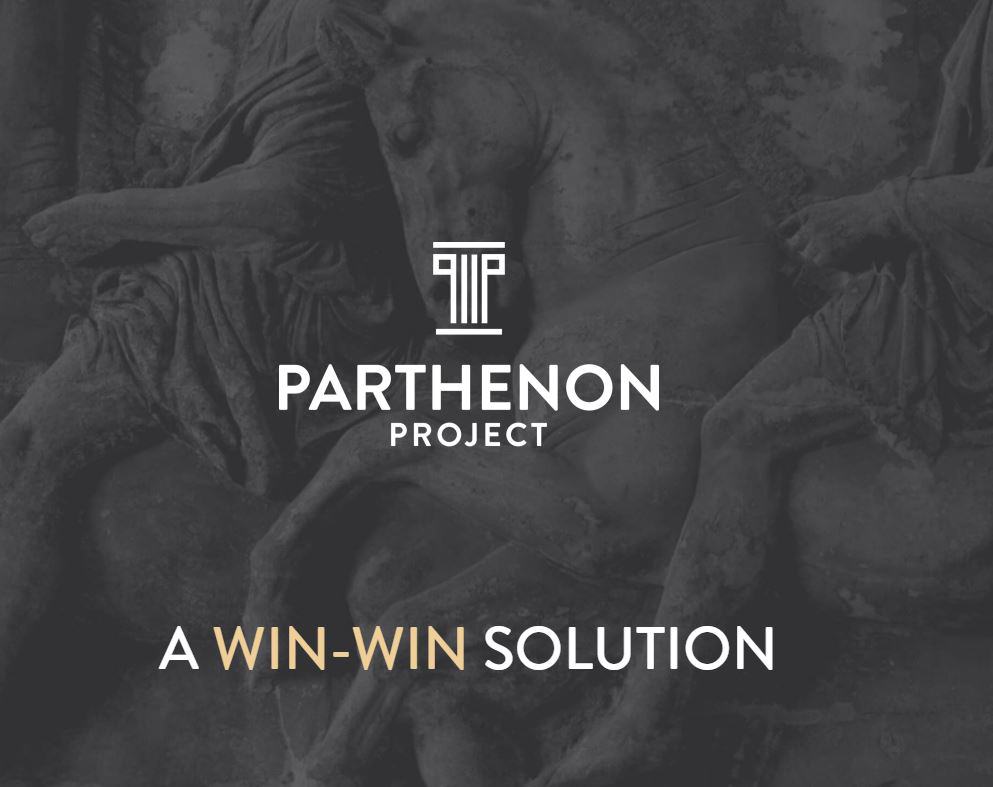
The idea is that new rotating exhibitions would be staged on a regular basis in the gallery where the Parthenon sculptures are currently displayed, featuring for example artefacts from the Mycenean world, then Classical Greece, an exhibition on Philip II and Alexander the Great, another on the Hellenistic world, so on. The British Museum would continue to house a world-leading collection of ancient Greek artefacts and treasures whilst the Acropolis Museum would become the permanent home of the entire reunified collection.
Relief at last
For some campaigners, such as the actor and writer Stephen Fry, Sarah Baxter’s feature was a relief and showed that for the first time in generations there is a realistic prospect of the Parthenon sculptures– being reunified in their birthplace in Athens.
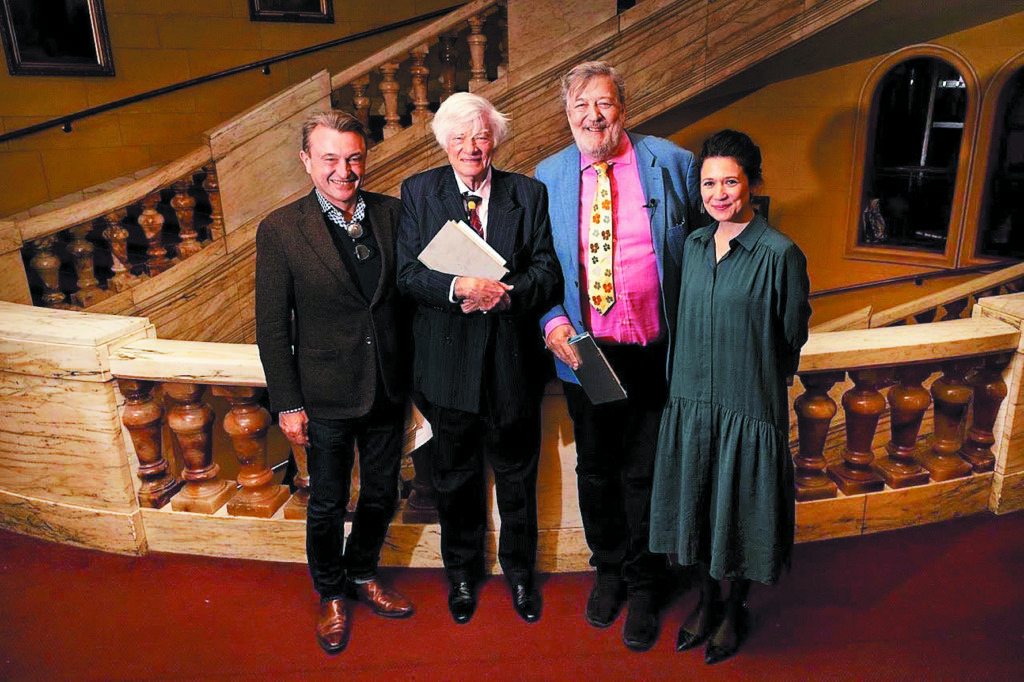
According to Fry in a letter to the Sunday Times:
“We can at last move away from two centuries of bitter but sterile legal wrangling and focus instead on an exchange in which other precious artefacts from Greece – many previously unseen – can be shared with the British Museum in recognition of its role as the leading encyclopaedic museum of the world.”
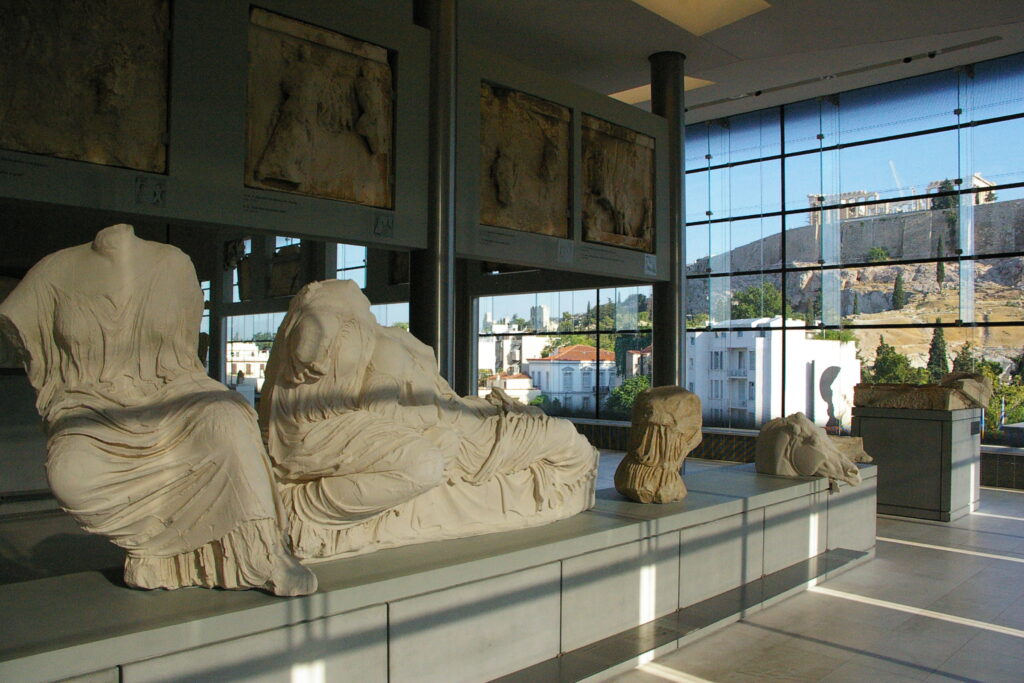
I welcome a true cultural partnership between the UK and Greece. Exact replicas of the sculptures can be installed in the Duveen Gallery and complemented by other sculptural treasures from Greece which would usher in an exciting new era of rotating and recurring exhibitions to complement the final reunification of the sculptures.
Perhaps, after all, the times are really changing.
George Vardas is Co-Vice President, Australian Parthenon Committee and Co-founder, of the Acropolis Research Group

